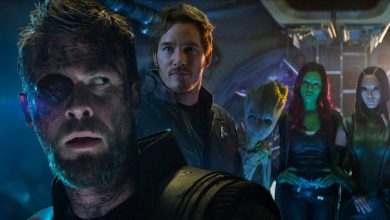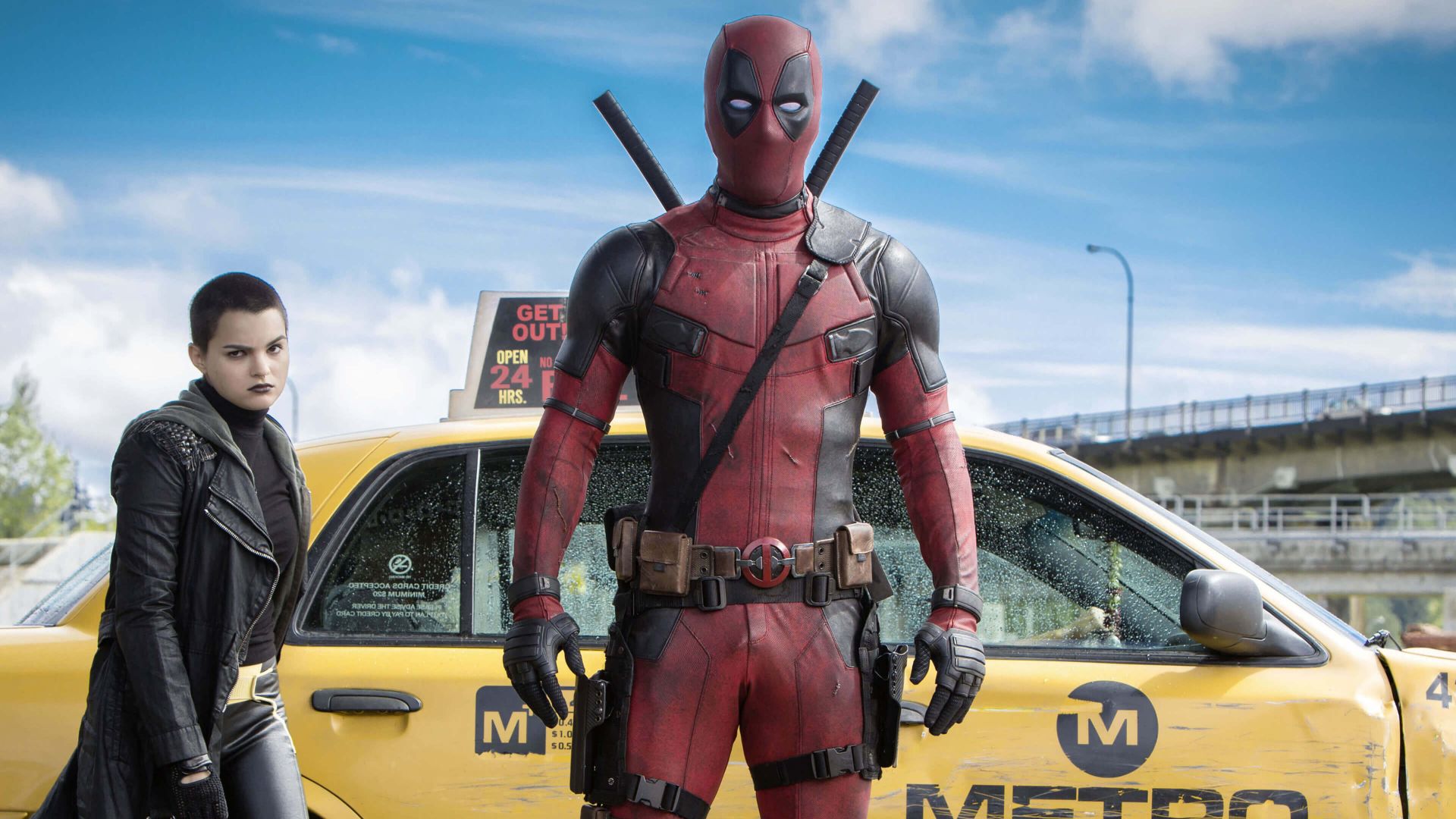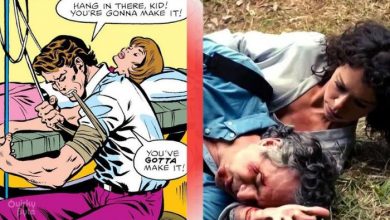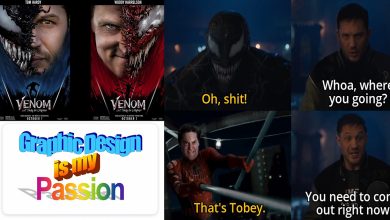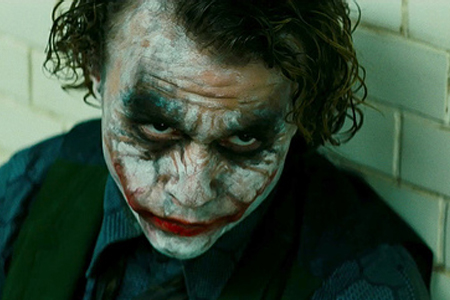
“If I have to have a past, then I prefer it to be multiple choice.”
―Alan Moore,Batman: The Killing Joke
Every good movie, hero or comic book character is accompanied by a host of fan theories, which can range from ridiculous to spine-chilling. After all, that’s the primary appeal of superheroes – we can lose ourselves in their world for a while, and tinker with it.
One of the most childhood-destroying yet simultaneously life-reaffirming fan theories doing the rounds is that the Joker in Batman knows that he’s in a comic book, or a movie.
It is a truth universally acknowledged that the Joker breaks the fourth wall many times. The Joker has occasionally acknowledged readers saying things like “don’t try this at home!” and “”cover you eyes, kiddies, this could get ugly”.
This implies that the Joker knows he’s in a comic/ movie, and and his humour is aimed at the viewers. Batman comes close to realizing the truth, but chooses to live with the illusion, rather than open his eyes to the truth.

After all, has it not always seemed peculiar that the Joker in The Dark Knight seems to hold all the cards, so to speak. His sheer manic genius is undeniable, but how is it that he’s always one step ahead of the entire Gotham City Police Department? Either The Joker is incredibly lucky or everyone else is incredibly dumb. Or he’s been in on the joke the whole time.
Heath Ledger’s Joker in the Nolanverse is different from other historic portrayals of the character. The Joker in the comics or cartoons often intersperses his chilling crimes with a deadpan pun or one-liner, which he laughs about hysterically. He doesn’t care if anyone else thinks the jokes are funny, because his most important target audience is he himself owing to the egocentricity of his madness.
In comparison, Nolan’s, and Ledger’s Joker laughs relatively little, and, like any good comedian, he knows that one doesn’t laugh at one’s own jokes. When he does laugh, it’s usually a response to something unexpected that someone else has said or done.
If the Joker is not his own comedic audience, most of his “jokes” only make sense in the context of his self-awareness (delusion) that he is in a movie.

1. The Bank Robbery

“No, no, I kill the bus driver…”
The opening scene of the Dark Knight is aheist that is a pretty neat sequence, in which an intricate plan is. executed.The Joker robs a bank with several other thieves, who kill each other off, only to be killed off in turn in a domino effect. The operation is executed successfully, and the only people who die are the henchmen.
But none of the henchmen sees the whole joke, only the small part in which they participate. The joke is only funny if you are the Joker (who doesn’t laugh, dutifully playing the part of comedian) or the movie audience. As the crowd thins out, one goon points a gun at the disguised Joker.
The clown corrects him: “No no no, I kill the bus driver” — as though he was correcting someone on the script, implying that he was aware of the sequence of events following up to that point. It’s a punchline shared between the audience and its self-aware clown. The Joker knows that he’s in a movie,and he’s performing for the viewer.
This definitely seems to be a plausible explanation. After all, the Joker says it himself:“Do I really look like a guy with a plan?”, which leads us to :
2) The Plan

During his conversation with Harvey Dent in the hospital, the Joker says that he never makes plans, but does things spontaneously. From any character’s perspective except for Batman and the Joker, his actions do seem random and chaotic. It is only with the semi-omniscient perspective of the viewer that his plan can be seen in full.
3) The Scars
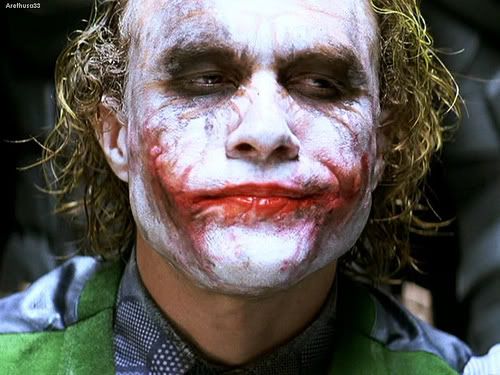
“You wanna know how I got these scars?”
The Joker has different accounts about where the scars came from, but nobody hears two differing stories. Each story is told to a different group of people: a handful of cronies (“My father was a drinker…”), Rachel Dawes (“So I had a wife…”), and Batman (Story unknown).
From their perspectives, he tells a traumatic story of how he became the way he is. The only people who know that Joker’s past is multiple-choice are the Joker (who doesn’t laugh) and the audience.
4) The Pencil

“It’s…it’s gone.”
True to form, the Joker does not laugh when he makes the pencil “disappear”. Nor does he expect the gang leaders to laugh, as they are enraged and mortified. It is only the audience that laughs.
5) The Fall

“You just couldn’t let me go…”
When we get to the climax, the Joker is actively trying to let Batman in on the joke, attempting to get the Dark Knight to finally kill his arch nemesis. This isn’t because he is suicidal, or that he wants to break Batman by destroying his moral code, but he wants to make him see that death is trivial, nothing more than a plot point for a movie audience.
In the end, The Joker fails to make Batman see the light. The end of The Dark Knight is very similar to the end of Tim Burton’s 1989 Batman. A pitched battle atop a skyscraper, ending with the Joker plummeting to his doom. Except in this movie, his fall is halted by Batman.
Listen to his last line again: “You see, madness, as you know, is like gravity. All it takes is a little…push!” He builds to a punch line that never actually comes. This delivery of the line and the rising of the music make it seem like he is going to suicidally cut the rope in an act of defiance.
But instead, his act of defiance is to refuse to give you the sense of closure that his death would bring. At the end, he laughs, not because he is mad, but because he put one over on us, the audience.
Batman comes close to an awareness that he is in a movie, but he chooses to deny it, remaining blind to this fact for fear of becoming like the Joker. “Sometimes the truth isn’t good enough…Sometimes people deserve to have their faith rewarded.”
Between fits of maniacal laughter, The Joker prophecies that the two of them are “destined to do this forever”, repeat this twisted dance again and again. And they are, because The Dark Knight is a movie that will be watched over and over, with the plot always going the exact same way, Batman always just barely triumphing over The Joker.

